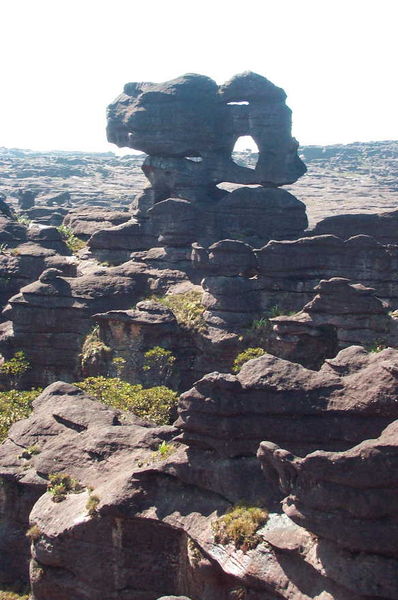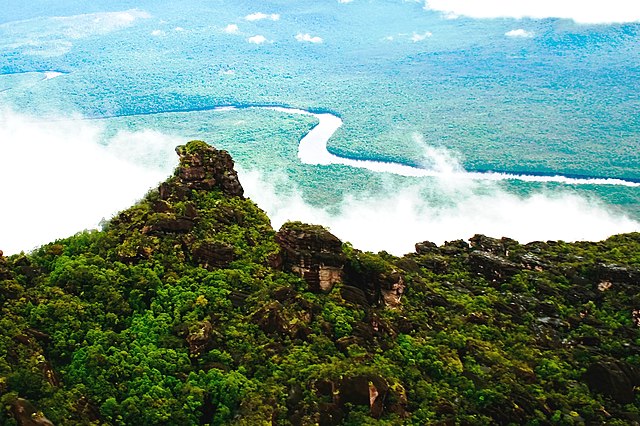A tepui, or tepuy, is a table-top mountain or mesa found in South America, especially in Venezuela and western Guyana. The word tepui means "house of the gods" in the native tongue of the Pemon, the indigenous people who inhabit the Gran Sabana.
Kukenan tepui
The plateau of Mount Roraima – the peculiar rock formation is caused by erosion.
Mount Roraima
View of the Venezuelan Amazon from the top of a tepui
A mesa is an isolated, flat-topped elevation, ridge or hill, which is bounded from all sides by steep escarpments and stands distinctly above a surrounding plain. Mesas characteristically consist of flat-lying soft sedimentary rocks capped by a more resistant layer or layers of harder rock, e.g. shales overlain by sandstones. The resistant layer acts as a caprock that forms the flat summit of a mesa. The caprock can consist of either sedimentary rocks such as sandstone and limestone; dissected lava flows; or a deeply eroded duricrust. Unlike plateau, whose usage does not imply horizontal layers of bedrock, e.g. Tibetan Plateau, the term mesa applies exclusively to the landforms built of flat-lying strata. Instead, flat-topped plateaus are specifically known as tablelands.
Aerial view of mesas in Monument Valley, on the Colorado Plateau
Cockburn Range, Kimberley, Western Australia, Australia
Har Qatum, a mesa located on the southern edge of Makhtesh Ramon, Israel
Mount Conner, a mesa located in Northern Territory, Australia








